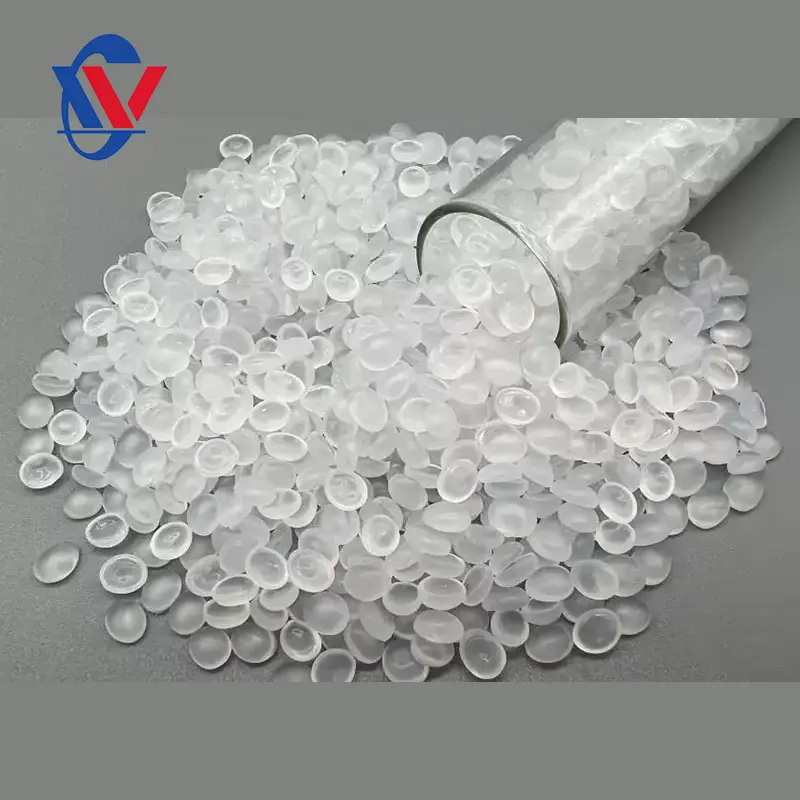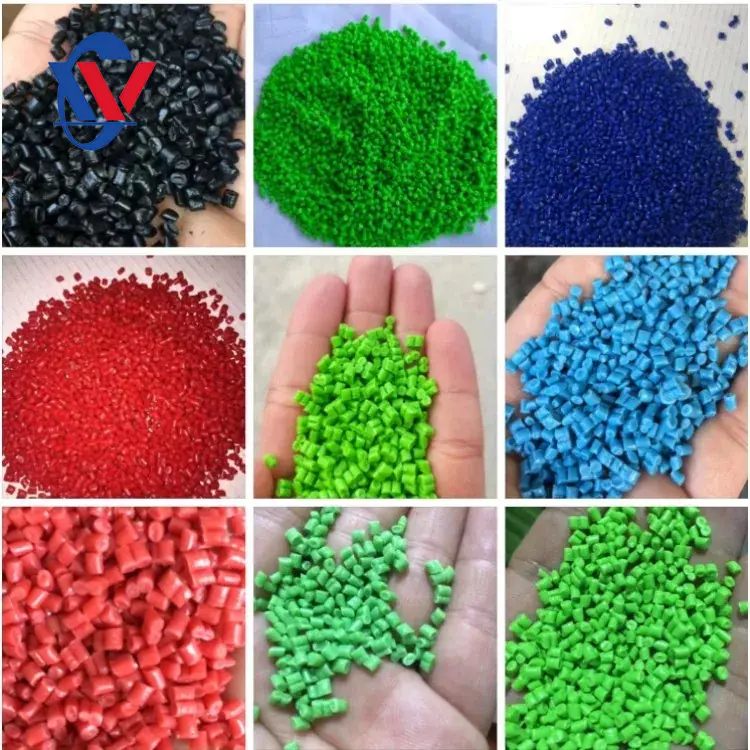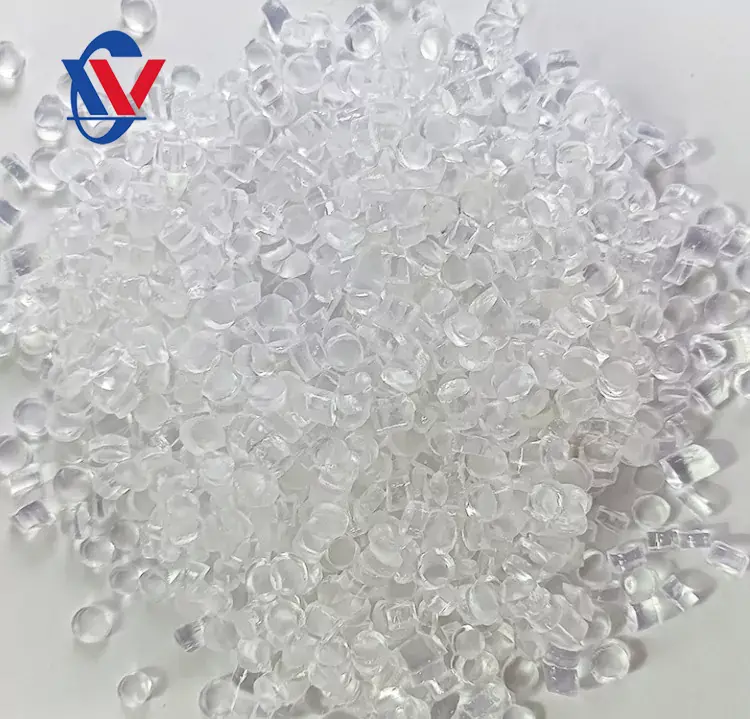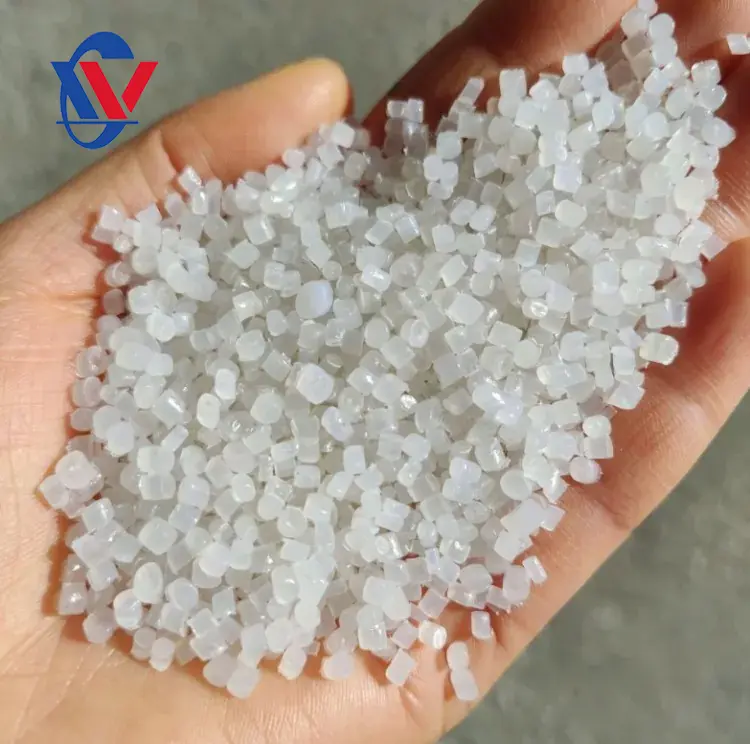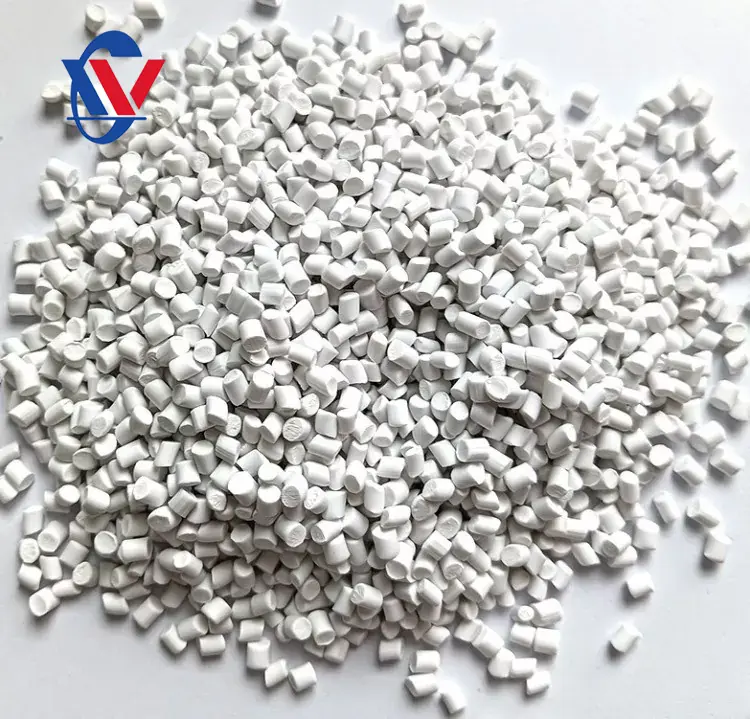Plastic Granules
Send Inquiry
What areplastic granules?
Plastic granules are a type of granular plastic material, which are generally divided into three categories: general-purpose plastics, engineering plastics, and special plastics. General-purpose plastics include materials such as polypropylene, polyethylene, polyvinyl chloride, polystyrene, polyester, and polyurethane, which are widely used in daily life and industrial production. Engineering plastics such as nylon, polytetrafluoroethylene, polyacetal, and polycarbonate have high performance requirements and are often used in occasions with special performance requirements. Special plastics include thermosetting plastics and functional high molecular weight plastics, such as artificial kidneys.
The production process of plastic granules includes melting, extrusion, and cutting, and they are characterized by light weight, durability, and strong plasticity. They play an important role in various industries such as packaging, construction, automobiles, and electronics. However, the excessive use and improper disposal of plastic granules have caused environmental pollution problems. Therefore, the development of biodegradable plastics and the improvement of plastic recycling rates are important development directions.
In industrial applications, plastic granules can be used to manufacture a variety of products, such as building components, clothing, and agricultural tools. The use of recycled granules not only reduces waste, but also reduces production costs and improves resource utilization.
Type of substance
Introduction to PP recycled plastics: Polypropylene (PP) - colorless and translucent, waxy, lighter than polyethylene, more transparent than polyethylene, and harder than polyethylene. Mainly used in pots, barrels, furniture, films, woven bags, strapping tape, bottle caps, car bumpers, etc.
Introduction to PE recycled plastics: Polyethylene (PE) - milky white and translucent when colorless, waxy; greasy to touch, soft and tough, slightly elongated, generally low-density polyethylene is softer, with better transparency, high-density polyethylene is harder, mainly used for plastic films, handbags, water pipes, oil drums, etc.
PS is polystyrene plastic, easy to color, with good transparency, mostly used to make lampshades, toothbrush handles, toys, and electrical parts. It is resistant to acid and alkali corrosion, but soluble in organic solvents such as chloroform, dichloroethylene, and banana water.
PVC is polyvinyl chloride plastic, bright in color, corrosion-resistant, strong and durable. Because some toxic auxiliary materials such as plasticizers and anti-aging agents are added during the manufacturing process, its products are generally not stored in food and medicine.
ABS is a plastic made of acrylonitrile, butadiene, and styrene. It has eye-catching colors, is heat-resistant, and is strong. The outer surface can be plated with metal films such as chrome and nickel. It can be made into piano keys, buttons, knife holders, TV shells, umbrella handles, etc.
PA is nylon plastic, which is tough, strong, and wear-resistant. It is often used to make combs, toothbrushes, clothes hooks, fan ribs, net bag ropes, fruit packaging bags, etc. Non-toxic, but not in long-term contact with acid and alkali
Material use
In daily life, recycled particles can be used to make various plastic bags, buckets, pots, toys, furniture, stationery and other daily necessities and various plastic products...
Clothing industry: Recycled particles can be used to make clothing, ties, buttons, zippers...
Building materials: Recycled particles can be used to make various building components, building tools, plastic doors and windows, mud buckets...
Agriculture: Recycled particles can be used to produce agricultural films, pump pipes, agricultural machinery, fertilizer bags, cement bags...
Machinery industry: Recycled particles can be used to make mechanical parts after special formulation: various forms of bearings, gears, cams, different wheels, seals, various blades, various pump impellers...
Chemical industry: Recycled particles can be used as reactors, pipes, containers, pumps, valves, etc., and are used in chemical production sites to solve corrosion and wear.
Grade classification
Recycled plastic particles are mainly classified according to the different raw materials used and the characteristics of the processed plastic particles, generally divided into primary, secondary and tertiary levels.
First-grade materials
Refers to the raw materials used as scraps without falling, or bottom scraps, some of which are nozzle materials, rubber head materials, etc., with relatively good quality, that is, unused, in the process of processing new materials, small scraps left, or raw materials of poor quality. The particles processed with these as wool have good transparency, and their quality is comparable to that of new materials, belonging to first-grade materials or special materials.
Second-grade materials
Refers to the raw materials that have been used once, but in addition to high-pressure granulation, imported large parts are used for high-pressure granulation. If the imported large parts are industrial films, they will not be exposed to wind and sun, so its quality is also very good. Whether the transparency of the processed particles is good or not, it should also be judged based on the brightness of the particles and whether the surface is rough.
Third-grade materials
Refers to the raw materials that have been used twice or more, and the processed particles have not good elasticity, toughness and other aspects.
Material use:
Recycled plastic particles have a wide range of uses. In daily life, recycled particles can be used to make various plastic bags, buckets, pots, toys, furniture, stationery and other daily necessities and various plastic products. In the clothing industry, it can be used to make clothing, ties, buttons, and zippers. In terms of building materials, the derivatives of recycled plastic particles, plastic wood profiles, are used to make various building components, plastic doors and windows. In the chemical industry, it can be used to make reactors, pipes, containers, pumps, valves, etc., and used in chemical production sites to solve corrosion and wear problems. In agriculture, it can be used to produce agricultural films, pump pipes, agricultural machinery, fertilizer bags, cement bags, etc. In addition, recycled particles are also widely used in the electrical industry and telecommunications industry.







